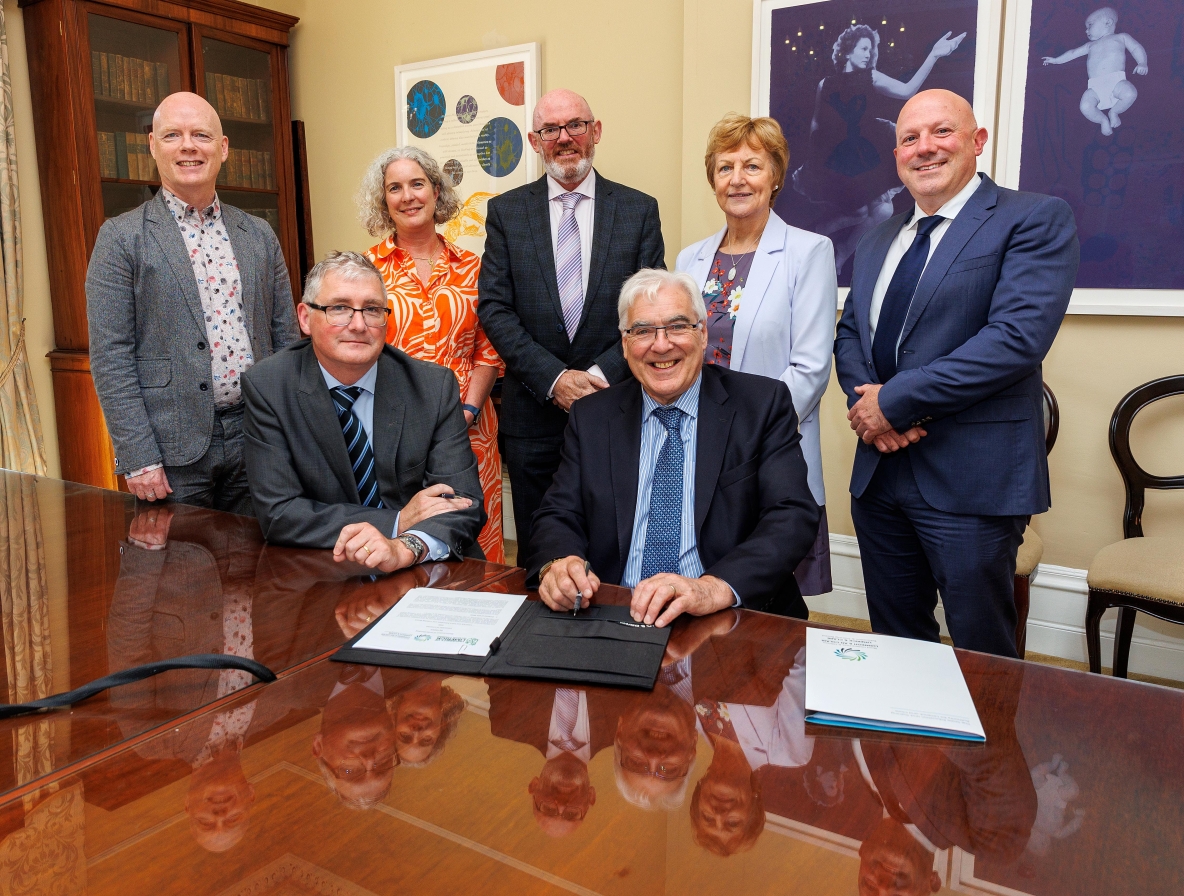
University of Limerick and Limerick and Clare Education and Training Board have signed a deal to work more closely together across a wide range of areas including community-engaged learning.
The signing of a memorandum of understanding (MoU) between UL and the ETB sets out an intent to explore collaborations which are mutually beneficial to staff and students at both institutions.
The organisations already have a successful relationship, working on various initiatives in the Access and Widening Participation space and in Continuing Professional Education, but the agreement allows for future growth opportunities including the increase of progression from further to higher education.
UL Provost and Deputy President Professor Shane Kilcommins said: “UL is delighted to work in partnership with Limerick and Clare Education and Training Board. This MoU will strengthen our relationship and support the delivery of the strategic objectives of both organisations, together with responding to national policy objectives.”
“UL and the ETB will work together to further enhance community engagement and access programmes, to foster engaged, accessible, and life-wide learning and innovation in the region, and to reinforce the civil and civic mission of the University, via our support for local communities through community-engaged learning and research initiatives.”
Limerick and Clare Education and Training Board Chief Executive George O’Callaghan said: “Through this MoU we look forward to deepening existing co-operation interests with UL and exploring further areas of collaboration for the benefit of both our second level students and Further Education and Training learners. This partnership aligns with our strategic objectives to deliver innovative outcomes, which respond to the changing social, economic and environmental needs of the region.
“Examples of collaboration like MY-Psy, a ground-breaking, psychology education programme co-designed by UL’s SCY-Lab and Junior Health Sciences Academy with teachers and students in ETB community colleges, along with the annual Junior Health Sciences Academy Online Early Careers Event for TY and 5th Year students about careers in healthcare, help create effective pathways and promote the role of education and training in developing the economic competitiveness and social inclusion of our region.”
The MoU was developed in response to the UL@50 Strategic Plan, the ETB Strategy Statement 2022-2026 and the Department of Further and Higher Education, Research, Innovation and Science Unified Tertiary System Policy, which intends that further education and training, higher education, and research and innovation will work closer together, as well as the National Access Plan 2022-2028.
Growth opportunities have been identified including the streamlining and proactive promotion of Quality and Qualifications Ireland pathways to UL and increasing progression from further to higher education, which is a key performance indicator in the new National Access Plan.
There will also be further work with access and widening participation target groups under a whole-of-education system approach and potential for collaborative proposals for capital investment.
The MoU confirms the intent of UL and Limerick and Clare Education and Training Board to collaborate on Community National Schools, Community Colleges and Youth Function; Further Education and Training; To explore synergies for Organisation Support and Development; Research collaboration in areas of mutual interest; Cooperation on international seminars, workshops, summer/winter schools; Development of articulation and progression agreements; and identification and development of key areas of common interest as stand-alone projects.